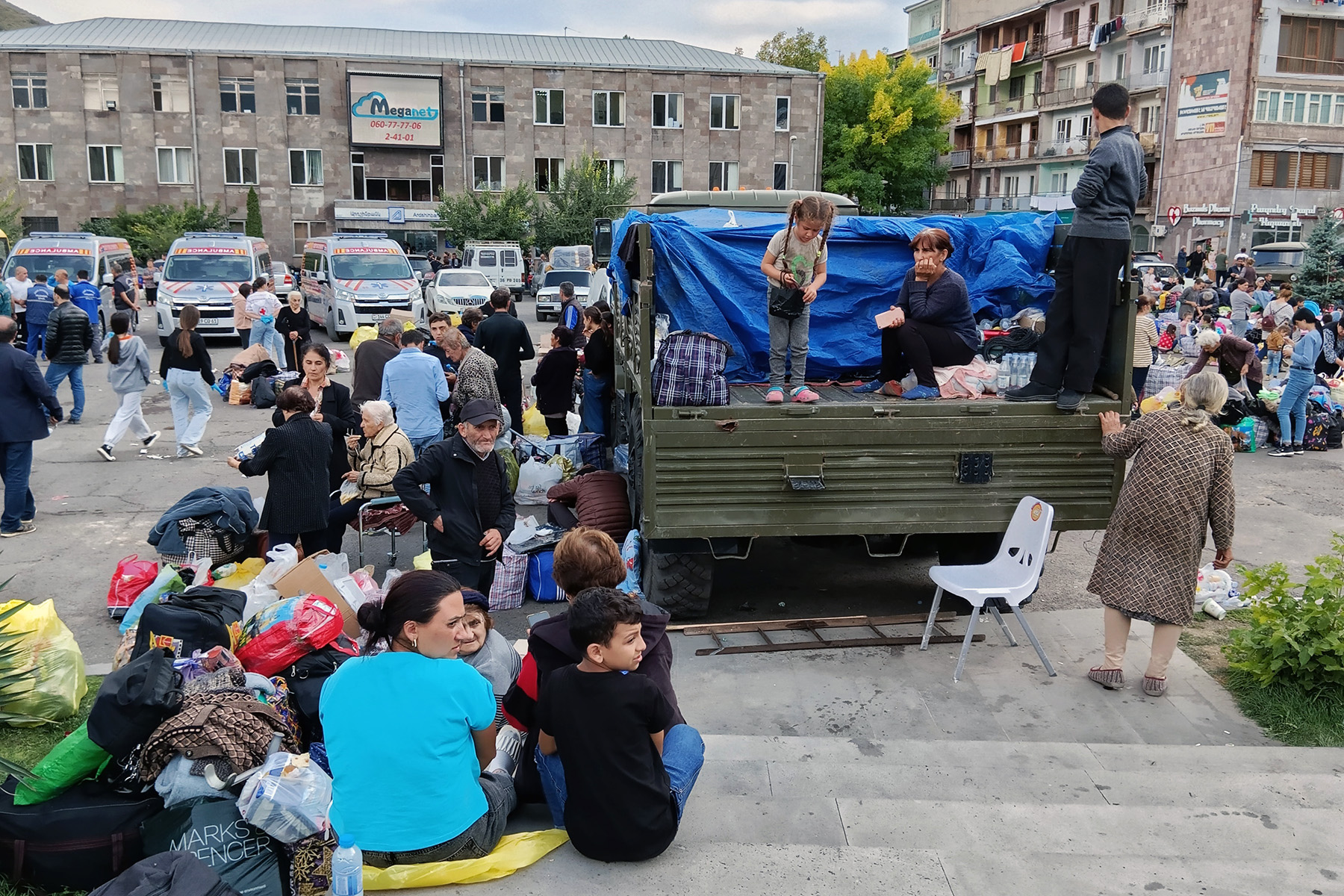In a scathing hour-long speech, Prime Minister Nikol Pashinyan hit out at Russia, accusing it of dragging Armenia to war, and suggesting that it used the Nagorno-Karabakh conflict to keep Armenia ‘on a leash’.
In an hour-long speech to parliament on Wednesday, Pashinyan alluded that ‘some states’ — an allusion to Russia — used the Nagorno-Karabakh conflict to ‘constrain’ Armenia.
Pashinyan stated that none of the negotiation opportunities that had arisen since 2016 offered solutions to the conflict, but aimed instead at tightening the ‘leash’ to prevent Armenia’s ‘attempts at acting as an independent and sovereign state’.
He stated that the 2020 Second Nagorno-Karabakh War was borne out of decisions made by ‘geopolitical centres known to you’. Pashinyan went on to say that attempts to ‘eliminate Armenian statehood’ continued following the war with military clashes on the Azerbaijan border.
Speaking about Azerbaijan’s assault on Nagorno-Karabakh in September 2023, Pashinyan said ‘exaggerated hopes towards the international community or de jure allies continuously bring us disastrous consequences’.
Nagorno-Karabakh announced its surrender to Azerbaijan after a two-day attack that was followed by the mass exodus of its Armenian population to Armenia.

‘What happened in Nagorno-Karabakh was not really about Nagorno-Karabakh, but another conspiracy to bring Armenia’s statehood to its knees’, he said.
‘Dragging Armenia into war, creating internal political chaos in Yerevan, overthrowing the legitimate government and establishing a puppet government, essentially a liquidation commission of the Republic of Armenia’.
Pashinyan also directly commented on Armenia’s strained relations with Russia, stating that the two countries were ‘obviously not experiencing the best of times’.
‘Real’ vs ‘Historical’ Armenia
During his speech, Pashinyan elaborated on a concept of what he said was the ‘Real’ vs ‘Historical’ Armenia, insisting that Armenians must accept modern Armenia within its current borders.
He said that before the 2020 war, there was a public consensus that the two ‘could not only coexist but could also strengthen each other’.
The two-day war with Azerbaijan in September 2022, he said, convinced him that delimiting Armenia’s borders with Azerbaijan based on the internationally recognised territory of Armenia could become ‘an additional and decisive factor in ensuring the country’s security’.
‘And from that moment, an actual, political, and psychological process began, which can be called a demarcation process between Real Armenia and Historical Armenia’, he said.
He suggested it was time to ‘recognise the territorial integrity of the Republic of Armenia ourselves’. Pashinyan suggested that calling for the territory of ‘Historical Armenia’ harmed Armenia’s sovereignty and independence.
He also discussed the ongoing demarcation talks with Azerbaijan, again hinting that Armenia might return control of four abandoned villages to Azerbaijan in a unilateral handover of territory to counteract ‘negative guarantees’ — possibly hinting at escalations with Azerbaijan.
Pashinyan said there was a ‘deep and conceptual sense’ that ‘Historical Armenia’s’ relationship with Russia was undergoing a change.
He again said that ‘external actors’ were trying to ‘distort Armenia’s foreign policy, bringing to the stage the false talk of creating divisive lines in the region’.
Pashinyan was likely responding to a Russian Foreign Ministry statement condemning a trilateral meeting between Armenia, the EU, and the US earlier this month.
At the time, Moscow stated that the ‘irresponsible and destructive interference of extra-regional forces’ in the affairs of the South Caucasus, could ‘provoke the emergence of new dividing lines, as well as an uncontrollable increase in tension’.
On Thursday, Pashinyan said he had not yet decided if he would participate in the inauguration ceremony of Russian President Vladimir Putin on 7 May. Asked about this by RFE/RL, he said that ‘like all decisions, [it depends] on many circumstances’.
Source: OC Media


